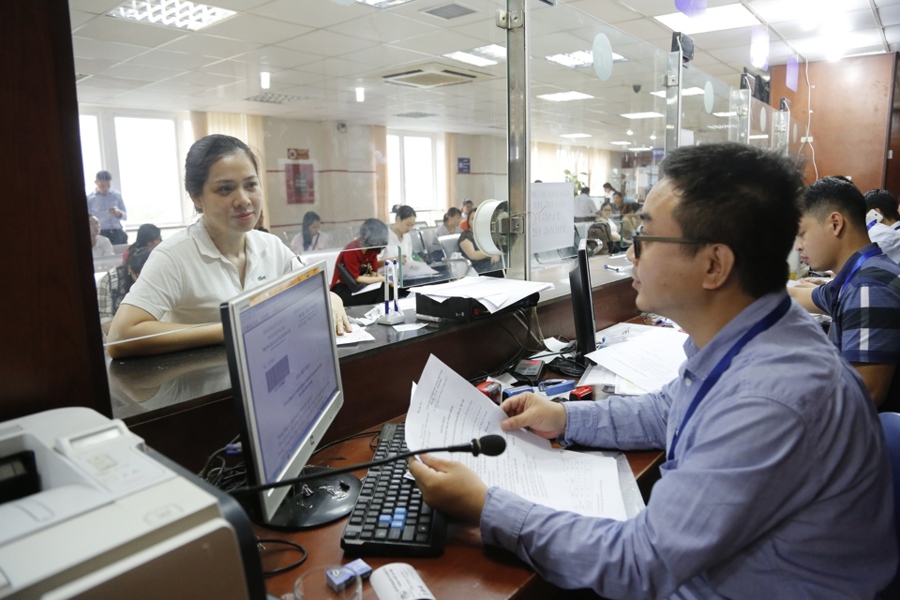PUBLIC SERVICES

The main objective is to oversee and assess the concrete and impartial outcomes of annual administrative reform endeavors conducted by local agencies.
Chairman of the Hanoi People’s Committee Tran Sy Thanh signed off Decision No. 4190/QD-UBND on the plan to complete set of administrative reform indicators for local departments and units in the city during the 2023-2030 period.
Locals apply for administrative services at an agency in Hanoi. Photo: Pham Hung
The main objective is to oversee and assess the concrete and impartial outcomes of annual administrative reform endeavors conducted by departments, units, and People's Committees in districts and municipalities throughout the administrative reform phase from 2023 to 2030.
In this context, a comprehensive set of eight evaluation criteria has been established to determine the local authorities’ efforts in administrative reform. These encompass: Steering and management of administrative reform; formulation and execution of legal documents; reforming of administrative procedures and the implementation of the "one-stop-shop" model; restructuring of the state administrative apparatus; reforming of the civil service; establishing of e-government and digital government; and the evaluating the impact of administrative reform on the city's socioeconomic advancement.
The evaluation scale for the indicators is set at 100 points, distributed as follows: A maximum of 70 out of 100 points for the assessment score and a maximum of 30 out of 100 points for the evaluation score garnered through sociological surveys.
The cumulative score is a synthesis of the sociological survey and the evaluation by the City Appraisal Council, acting as the foundation for determining the administrative reform effort of each respective agency or entity.
To accomplish this effectively, departments, units, and district-level People's Committees, referencing the stipulated criteria and the outcomes of their administrative reform missions, undertake self-assessments and conclude them by November 30 each year.
Members of the City Appraisal Council perform assessments and evaluations (first-round assessment) by December 15 each year. Subsequent to this, the agencies and units conducting self-assessments provide supplementary clarifications and document verifications, which should be concluded by January 15 of the following year. The City Appraisal Council then conducts evaluations (second-round assessment) to be completed by January 31 of the ensuing year.
Ngoc Mai
